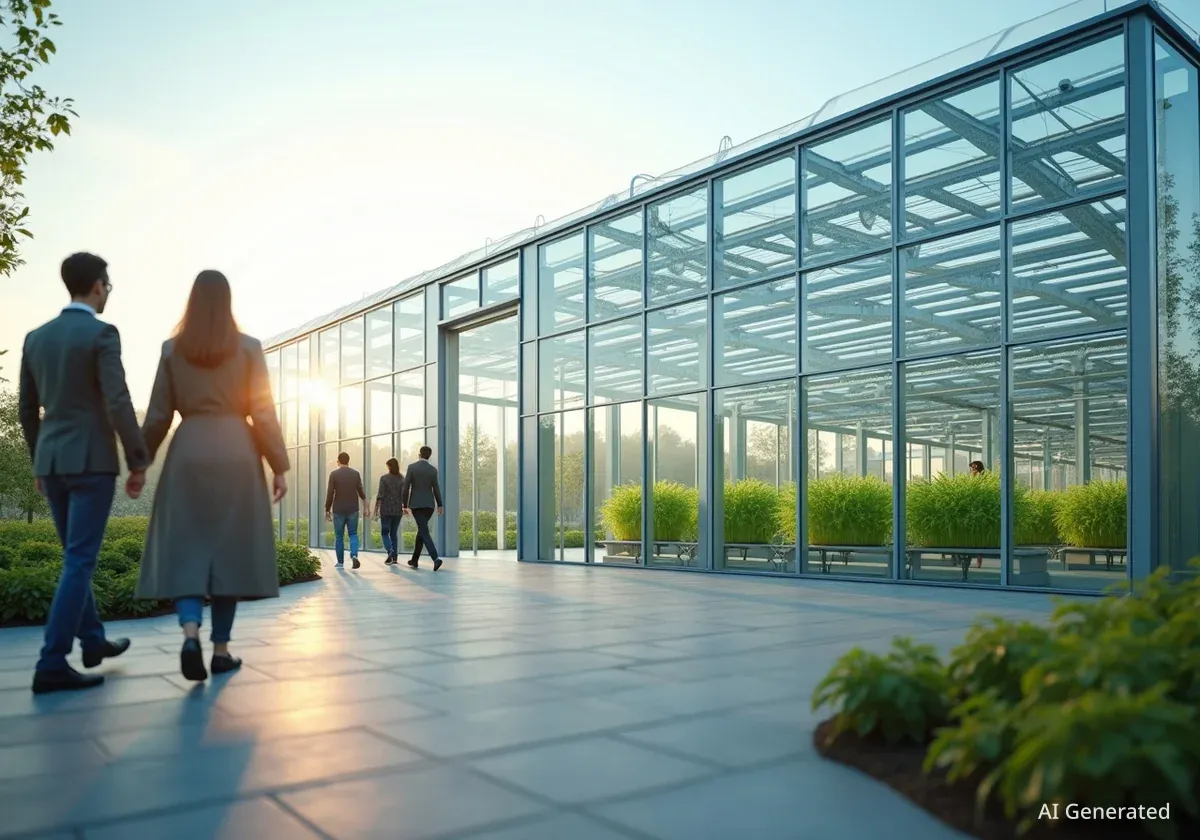The University of Nevada, Reno (UNR) has officially opened its new College of Agriculture Main Station Farm Science Center, a facility developed over a decade to enhance agricultural research, teaching, and community outreach. The center aims to centralize learning and support key sectors of Nevada's economy, including the meat industry.
Key Takeaways
- The new UNR Farm Science Center is the result of a 10-year development project.
- It provides modern classrooms, labs, and essential amenities for the first time at the Main Station Farm.
- The facility will support programs in meat science, animal science, horticulture, and veterinary studies.
- It is expected to boost Nevada's economy by creating jobs and supporting the local meat processing industry.
A Milestone for Agricultural Education in Nevada
After a decade of planning and development, the University of Nevada, Reno, celebrated the grand opening of its College of Agriculture Main Station Farm Science Center. This new building marks a significant step forward for the university's agricultural programs, providing a dedicated space for hands-on learning and research.
Bill Payne, the Dean of the College of Agriculture, Biotechnology, and Natural Resources, described the facility as crucial for advancing the college's missions. He emphasized its role in integrating research, teaching, and extension services that benefit the broader community.
Solving Longstanding Challenges
Previously, students and faculty at the Main Station Farm faced significant logistical hurdles. The site lacked basic infrastructure, including classrooms, laboratories, and even restrooms. This forced students to travel back to the main campus for lectures or lab work, disrupting the educational flow and creating major inefficiencies. The new center resolves these issues by consolidating all necessary facilities in one location.
"Before, if you had someone out here, they would do that lab part of a course, but there are no classrooms, so they have to go back on campus for the class part," Payne explained. He noted that the absence of labs and restrooms made for a disjointed and inefficient teaching environment.
Enhancing Research and Student Learning
The Farm Science Center is designed to directly support a new era of agricultural education at UNR. With a capacity to accommodate 48 students at once, it provides a modern, efficient learning environment.
Initially, the college is piloting a single course at the center. However, there are ambitious plans to expand the curriculum significantly. Future courses will cover a range of disciplines, including animal science, meat science, veterinary science, and wildlife science.
"This facility advances their important missions in research and teaching, and outreach through extension," said Dean Bill Payne, highlighting the center's multi-faceted purpose.
The integration of classrooms and labs on-site means that theoretical lessons can be immediately followed by practical application. This hands-on approach is vital for students pursuing careers in agriculture and natural resource management.
Facility at a Glance
- Development Time: 10 years
- Student Capacity: 48
- Key Features: Classrooms, laboratories, restrooms, and modern teaching equipment.
- Initial Focus: One pilot course with plans for expansion.
Supporting Nevada's Economy and Meat Industry
A primary focus of the new center is to bolster Nevada's economy, particularly its meat industry. Dean Payne pointed out that the state has a limited number of meat processing facilities, making the university's role even more critical.
The center will work in conjunction with Wolf Pack Meats, the university's USDA-inspected and organically run meat processing plant. This synergy will provide students with invaluable training and support local livestock producers.
"Well, meat, for one thing, and it's an important part of the economy," Payne stated. "It generates jobs and income."
Comprehensive Meat Science Program
The meat and animal science programs will have three core components: research, academic teaching, and community outreach. The facility will enable in-depth study and training related to beef, lamb, and eventually, pork.
This comprehensive approach not only prepares students for the workforce but also provides essential services and knowledge to Nevada's ranchers and agricultural businesses. The outreach component will include programs like 4H, Master Gardeners, and horticulture workshops.
Future Plans and Collaborations
The vision for the Farm Science Center extends beyond the university's own programs. UNR plans to make the facility a resource for state agencies and the wider community.
According to Dean Payne, the university intends to share the facility with the Nevada Department of Agriculture and the Department of Wildlife. These partnerships will foster collaboration on research projects and training initiatives that address statewide agricultural and environmental challenges.
The grand opening event, which included presentations and guided tours, showcased the potential of this new hub. For the first time, UNR has a dedicated, modern facility at its farm station, capable of supporting a diverse range of educational and research activities that will shape the future of agriculture in Nevada for years to come.





